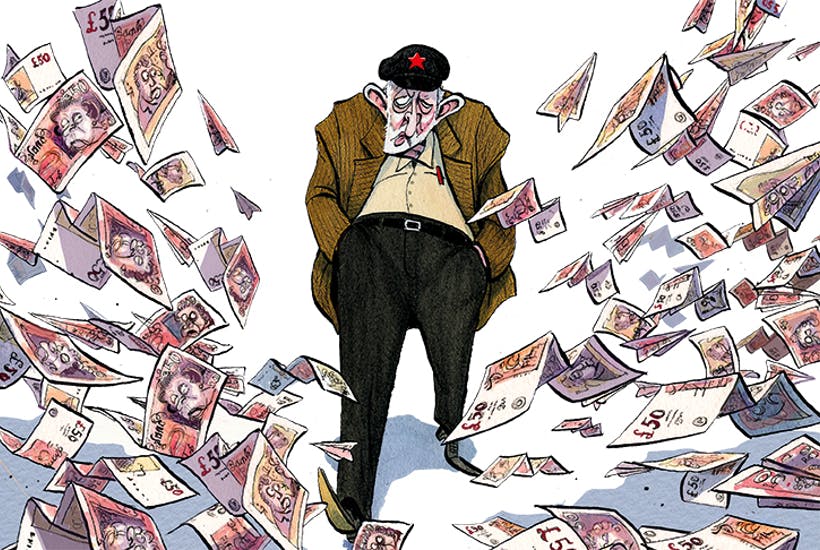Factories would move abroad to escape punitive tariffs. The ports would be blocked up. The hospitals would run out of medicines and fruit would remain unpicked on trees.
Over the last three years, we have become used to wildly over-the-top predictions about all the terrible things that would happen to the British economy if we ever get around to leaving the European Union. But if you thought that was bad, and global investors were nervous about putting money into the UK markets, wait until you see what happens as they start to get to grips with the plans should Jeremy Corbyn and John McDonnell ever move into Numbers 10 and 11 Downing Street.
The FTSE is already one of the cheapest major indices in the world but that doesn’t mean it can’t get a lot cheaper still.
Over the last few days, more and more of Labour’s plans for the economy have started to emerge. None of it looks good for investors. There are plans for sweeping rounds of nationalisation, including the water industry, the power grid, the railways and the postal system.
So far, there haven’t been any announcements about taking easyJet into state hands to recreate the glories of the old British European Airways or re-inventing the pleasures of the state-owned coach network. But, heck, there is still plenty of time. It might happen any day. Once you start nationalising industries, it is hard to know where to stop.
The trouble is, that is going to be terrible for the British economy. There are two main reasons for that.
The first is that the Labour Party has abandoned all pretence of treating shareholders fairly. When Clement Attlee and Harold Wilson embarked on a round of nationalisations in the 1940s and 1960s – all of which had to be unwound in the decades that followed – they at least paid market prices. Now, dressed up with a lot of half-baked rhetoric about asset-strippers, the plan is to pay far less than the current share price.
In effect, Labour will only be paying partial compensation for the assets it takes under its control. No one needs to take more than a nano-second to work out the kind of impact that is going to have on global investors.
What is the point of putting money into the country when the government might take it off you for whatever it happens to feel like paying, especially when there are tempting alternatives like Venezuela and Zimbabwe competing for your dollars, yen or euros? None at all.
Even worse, it is going to mean the UK has some of the worst infrastructure in the world. If there is one thing we know for certain from the last hundred years it is that the state is a terrible manager of industrial assets. It makes short-term, politically motivated decisions, over-cossets its staff, ignores its customers, curbs competition, and stalls innovation.
At a moment when we need to invest more in alternative fuels, in better transport links and need to remain open to the way new technologies can turn old industries upside down, we look intent on creating some of the worst basic infrastructure anywhere. Why invest in British retailers, or banks, or tech start-ups, if they might not have the electricity to run their businesses? It is hard to think of a reason.
Fear of Brexit has meant the FTSE has already spent the last three years as one of the cheapest major indices in the world. It is about to get a whole lot worse.
As it happened, fears over the consequences of leaving the EU were wildly over-blown (and we might never get around to leaving anyway). Nervousness over Corbyn is turning out to be completely justified. Other indices around the world may well keep hitting record highs in the next few months. But so long as the polls suggest there is any threat of a Labour government, the London market won’t be among them – and rightly so.






Comments